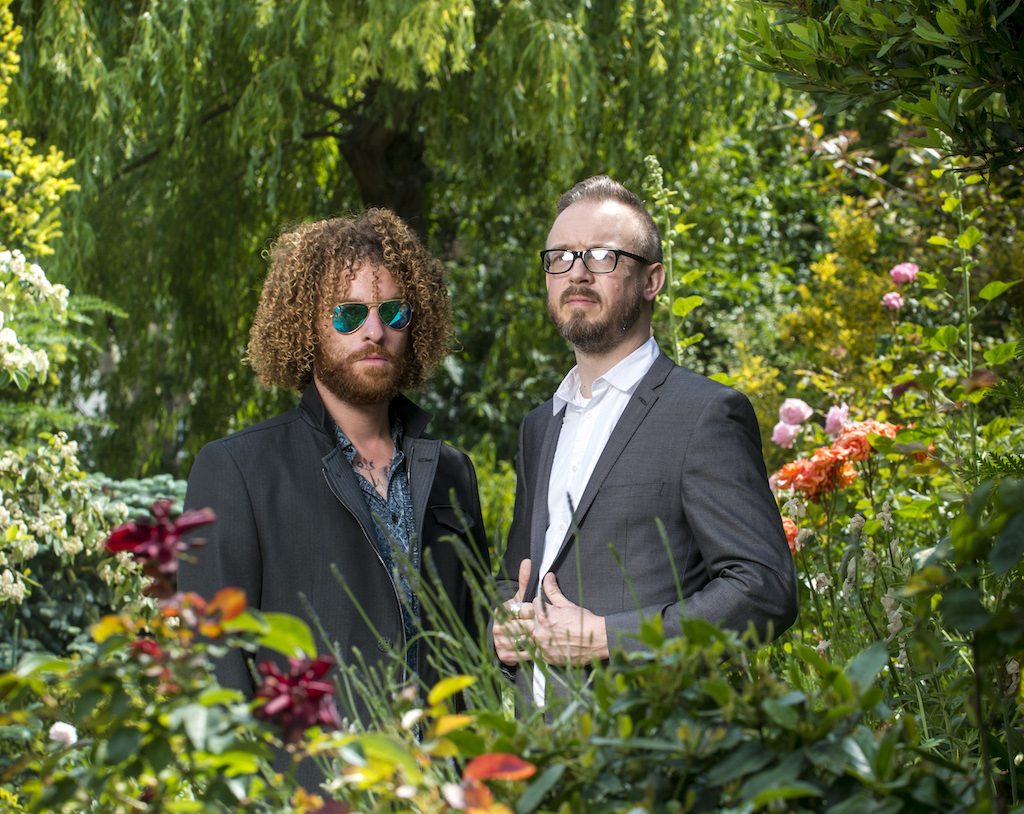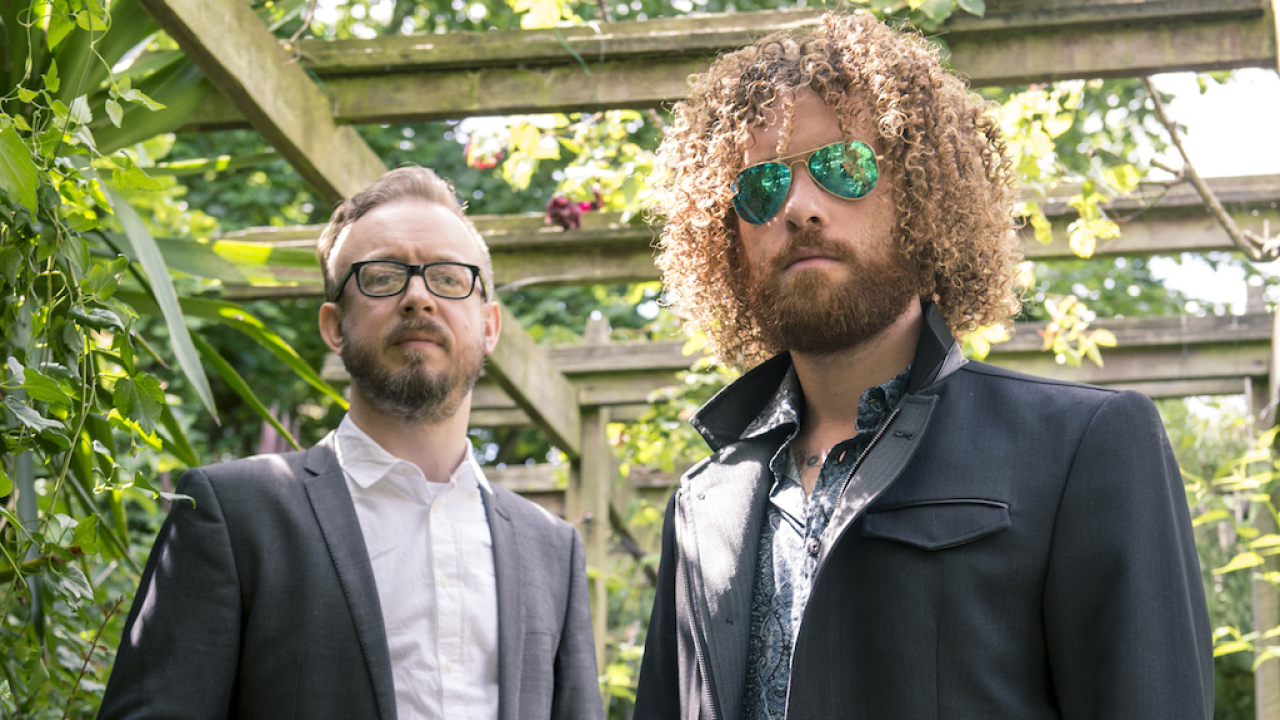It’s a meeting of scholarly minds when we bring together two lauded nu proggers: Sweet Billy Pilgrim’s Tim Elsenburg and Messenger’s Khaled Lowe. “Neither of us knew we were prog until people told us so,” says the Mercury Prize-nominated, professorial, prog-popster Elsenburg, laughing. “There was no: ‘Hey, let’s sound like Genesis, King Crimson or Jethro Tull,’” says Lowe, distinctively coiffed and arriving just hours after a Sardinian festival appearance with his deep and dreamy psych squad. Time to discover more from the swots of our Class Of 2015.
Congratulations, you’re our prog ambassadors! What does that mean to you in 2015?
Elsenburg: It’s about putting imagination before anything else. All good music has that, from hip-hop to heavy metal. But if there’s a thing that links all the bands I love it’s that everything comes from the imagination, without genre limitations or labels.
Lowe: I concur. Modern prog is not being afraid to push your limits, musically or visually. Back in the day, prog rose because of engineering with certain ‘new’ instruments, played by jazz and classical musicians who were technically very well trained. Now you can have progressive pop, progressive death metal… but not being technically excellent isn’t a barrier now.
I feel more clever when I listen to prog. Is it still thinking people’s music made by swots?
Lowe: I can agree with that to an extent. I was a straight-A student… then I barely scraped a two two at uni cos I got distracted – by prog [laughs]. It doesn’t have to be clever, but once there’s a will to explore music and lyrics outside of a certain formula, then by that very notion it is thinking people’s music.
Elsenburg: We get called clever almost like it’s a bad thing. The worst criticism we’ve ever had was: “You’ve got too many ideas.” When you listen to a song, you want to decode it – it’s a subconscious thing. Committing to a forty-minute album is that writ large. And as human beings it’s important that we do take time to commit to those things, as well as zoning out in front of the telly or going down the pub. Prog’s designed to be a journey, a statement that connects you to the world.
But prog’s also been dismissed for having no soul.
Lowe: No, prog totally works for that. Our album Illusory Blues is extremely emotional because we went through some really heavy shit while that was happening, so we were able to remain honest and have this cathartic output to deal with certain emotions. It goes back to the ‘thinking man’s’ thing; when music is inextricably linked to the soul or spirit, it’s a serious thing. In flamenco they call it ‘duende’ – a simultaneous outpouring of truth, catharsis and being in that moment.
Elsenburg: We played the Marillion weekend and that place was filled with emotion, and devotion. The fans are like a family. Prog bands don’t look down on people or act cynically. The majority of stuff on the radio is generic background music, a vague heartbeat, but it’s not adding anything emotional to people’s lives. I feel our music is.
Who else is pushing the envelope right now?
Lowe: This is gonna sound cheesy cos you’re in the room, Tim, but every band I saw at [Camden rock festival in April] Desertfest on the Prog stage – Landskap, Sumer, Sweet Billy Pilgrim, iamthemorning, Amplifier. Most of those bands I’d never heard of before, cos my favourite music was made between 1967 and 1974, or it’s not progressive rock at all, but someone like Rival Sons.
Elsenburg: Principally, my taste was shaped by Swans and Sonic Youth, at the same time as falling in love with pop music. I must mention Field Music for melody, great lyrics and thematic records. But experimentation today comes from mostly metal bands – the djent movement, Periphery and Mastodon. Meshuggah are the ones for me. What they do is so pure: “We don’t do melody, we don’t do key changes” – it’s that focused aggression. Swans have that same purity: “We’re gonna do one chord and it’s gonna get really loud.”
What image does new prog have – is it still wizards and dragons? Would Gentle Giant make it past the ‘branding Nazis’ these days?
Elsenburg: Are dungarees okay? Yes, they are!
Lowe: [Laughs] Me and Dan [Knight], our keyboard player, were watching a live Gentle Giant video from 1978 of Two Weeks In Spain, and our friend said: “What the fuck is this? Look at the state of them!” To me, image doesn’t matter at all. I just happen to have this hair. And I’ve had a lot of flak for it. I would rather remain anonymous. Take a band like Goat, though. If they did what they did without the costumes or the masks it wouldn’t work. And with Sunn 0))) the image works perfectly.
Elsenburg: Well, wizards and dragons don’t figure with us either. But in England there’s kind of a fashion-led thing that’s attached to new bands, that eventually gets thrown back in your face anyway. For us, we didn’t go to art school together, we don’t look similar, but hopefully the way we play and present our music is image enough.
With prog’s ongoing renaissance, do you think you might be able to make a living from it?
Lowe: Absolutely. We just played an unplugged tour with Katatonia in six or seven countries that we’d never been to before, and we came back with eight grand just from merch. So I can see light at the end of that tunnel. But you have to be free to jump in the van and live that life.
Elsenburg: I don’t think so. The age of having your rock god lifestyle funded for you by a label is over. We’re a little bit older, we’ve got families, mortgages. We don’t even have a booking agent. But we play Pledge-funded house gigs for fans, and if we can connect with ten people, or a hundred, or more, that’s a wonderful thing. I might make a living from it one day, but with the connection we’re making on a human level I’m not going to moan about my lot.”


